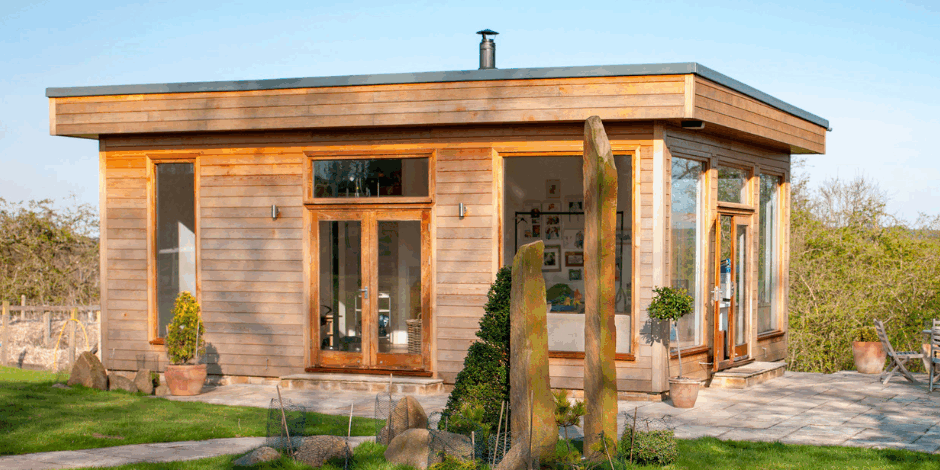With hybrid working now a long-term reality, many business owners are exploring ways to create dedicated workspace at home. Garden rooms, stylish, detached offices in the back garden, are increasingly popular.
But if you’re thinking of having your company pay for one, it’s crucial to understand the tax consequences before you commit. Unfortunately, it’s rarely as straightforward or beneficial as people assume.
The Big Question: Can the Company Pay for It?
Yes, technically, your limited company can pay for a garden office. But here’s the catch: it doesn’t mean it’s tax-efficient.
The structure itself is considered a capital asset and, since it’s a building, you won’t get any corporation tax relief on the construction costs. HMRC does not allow tax relief for buildings unless they qualify for special allowances, which garden rooms usually don’t.
So while the company can foot the bill, there’s no tax deduction for the main cost.
Benefit-in-Kind (BIK) Headaches
If you, as a director or employee, personally use the garden room in any way (even just for the occasional Zoom call or quiet reading), it could trigger a benefit-in-kind tax charge.
That means:
• The company may face additional employer National Insurance costs, and
• You could be taxed personally on the deemed value of that benefit.
Even if it’s intended solely for business use, HMRC often scrutinises garden rooms and may challenge claims where there’s any suggestion of mixed use.
Capital Gains Tax Risks
Using part of your property exclusively for business – particularly something as fixed and prominent as a garden building – can also reduce your entitlement to Private Residence Relief when you eventually sell your home.
This could result in a Capital Gains Tax bill, even if the room is just sitting there unused after a few years.
What Can You Claim?
While the building itself offers no corporation tax relief, you may be able to claim:
• Capital allowances on internal fittings, such as lighting, furniture, cabling, and flooring.
• Running costs (heating, electricity, internet), but only the business-use portion.
• Partial VAT recovery, if the business is VAT registered and use is strictly business-only.
But again, these claims must be clearly justified and well-documented.
Is It Worth the Hassle?
In many cases, the administrative burden and tax exposure outweigh the benefits of having your company own and pay for the garden room.
You may be better off:
• Paying for it personally, and
• Charging the company rent, or claiming a home office allowance (where appropriate),
which avoids benefit-in-kind issues and protects your Private Residence Relief.
Summary: Proceed with Caution
• No tax deduction for the garden room itself if paid by the company
• Benefit-in-kind tax charges possible for directors and employees
• CGT exposure if the garden room is deemed business-exclusive use
• Capital allowances and VAT may be available – but only in specific cases
Thinking About a Garden Office? Talk to Us First.
It’s tempting to assume your company footing the bill makes sense – but with garden rooms, the tax rules are a minefield.
Get in touch with Greystone Advisory before you commit. We’ll guide you through the options, help you avoid hidden tax traps, and make sure any workspace investment works for you, not against you.






